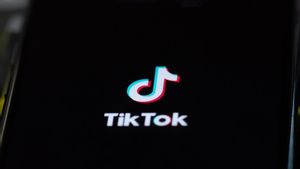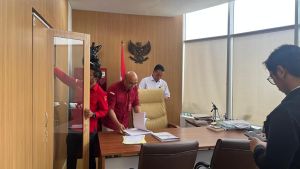JAKARTA - The EU Parliament approved the rules of the world's first artificial intelligence (AI). This marks Europe's advanced steps in regulating technologies it uses to thrive in various industries and daily life.
The process of making this rule took three years. The emergence of a generative AI system like ChatGPT from Microsoft-backed OpenAI, and Gemini chatbot from Google, sparked concerns over misinformation and fake news.
The new rules will set up a high-impact general-purpose AI model and high-risk AI systems. These two types of AI must comply with certain transparency obligations and follow EU copyright laws.
This rule also limits the use of real-time biometric surveillance by governments in public spaces. The surveillance is only permitted to deal with certain crimes, real threat prevention such as terrorist attacks, and searches for suspected serious crimes.
"I welcome the tremendous support from the European Parliament for the EU AI Act, the first comprehensive binding framework for reliable AI. Europe is now the maker of global standards in reliable AI," said EU industry head Thierry Breton.
A total of 523 EU lawmakers supported the deal, while 46 opposed and 49 abstained.
EU countries are expected to give formal approval to the agreement in May. This regulation is expected to take effect early next year and be implemented in 2026, although some provisions will apply earlier.
"Brussels may have set standards for the rest of the world," said Patrick Van Eecke, partner at law firm Coley.
"European Union now has the world's first written AI law. Countries and other regions are likely to use the AI Act as a blueprint, just like they did with the GDPR," he said, referring to EU privacy regulations.
However, he said the weakness for the company was a complicated bureaucracy.
The European Parliament and EU countries reached an initial agreement in December after nearly 40 hours of negotiations.
Companies are at risk of fines ranging from 7.5 million euros or 1.5% of turnover to 35 million euros or 7% of global turnover depending on the type of violation.
BusinessEurope's lobby group expressed concern about how the rules would be implemented.
SEE ALSO:
"The need for extensive secondary laws and guidelines raises significant questions about legal certainty and the interpretation of laws in practice, which is important for investment decisions," said director general Markus J. Beyrer.
An Amazon spokesperson, who has started launching a new AI assistant, welcomed the vote: "We are committed to working with the EU and industry to support the development of secure, secure, and responsible AI technology."
Meta Platforms warns of any action that could hinder innovation.
"It's very important we don't forget the great potential of AI to drive European innovation and enable competition, and openness is key here," said Marco Pancini, head of EU Meta affairs.
Indonesia, as a country that is intensively encouraging technological developments, needs to pay attention to the AI regulations set by the European Union.
The English, Chinese, Japanese, Arabic, and French versions are automatically generated by the AI. So there may still be inaccuracies in translating, please always see Indonesian as our main language. (system supported by DigitalSiber.id)


















